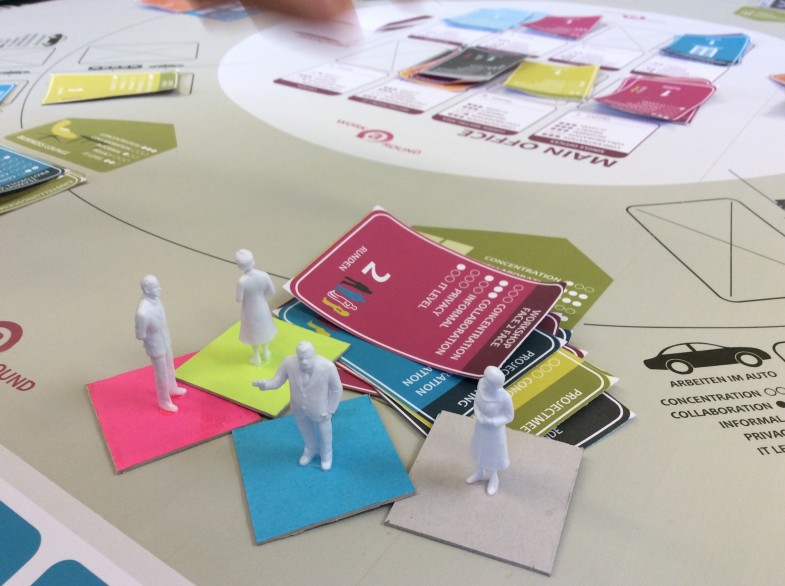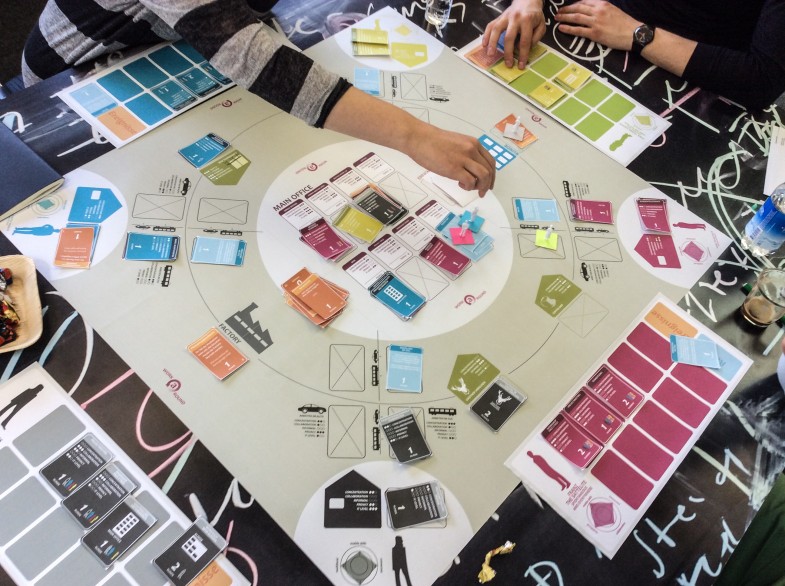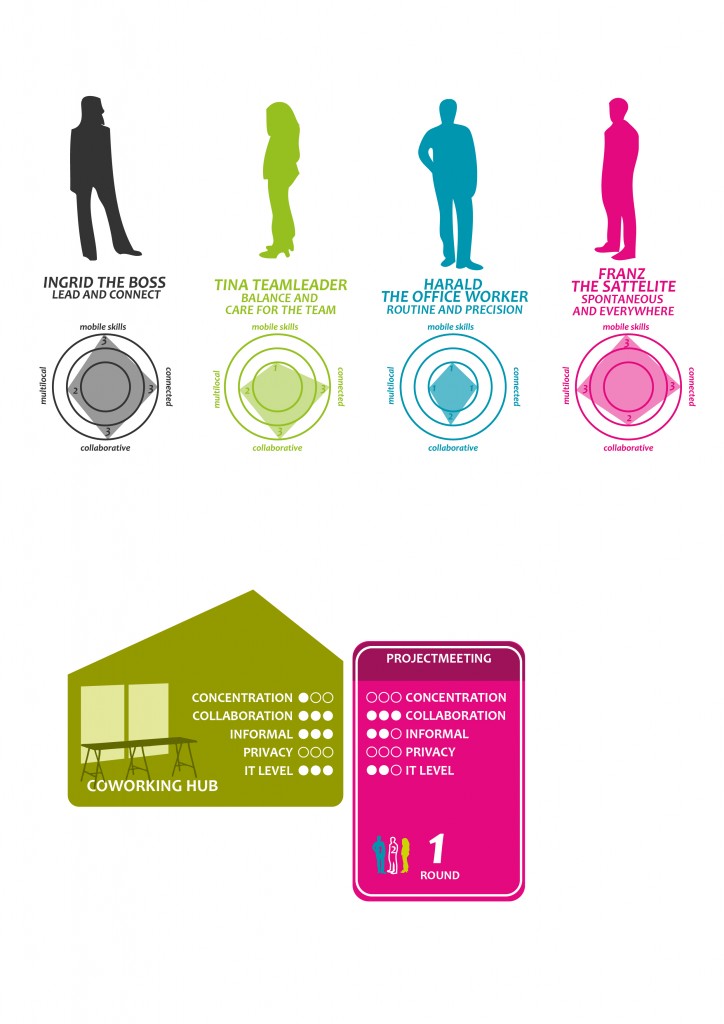During a two-year research project about behavioral and organisational change when facing the shift from conventional to mobile-flexible work strategies, I developed a Simulation Board Game aiming to facilitate change processes. The game was developed and tested with both, SME’s and large corporates and was presented at the 2016 ServDes Conference in Copenhagen, Denmark as well as discussed in a Special Issue on Service Design in Simulation & Gaming: An International Journal of Theory, Practice and Research.

«Work A Round» is a tool that helps companies to sensitize its employees, managers and executives for the ongoing shift of today’s work culture. It does so by simulating an environment that is based upon multi–located work and task–oriented workplaces. Main element that is meant to support the company’s change process is a three-folded de-briefing process that is being held during and after the game.
How it works: the game is designed to be played in groups of four by swapping real-life roles with the ones assigned in the game. While the game is being moderated by a facilitator, the overall goal is not to accomplish all tasks as a single group of players but as a whole. This fosters a lot of strategic planning and communication amongst players.

To accomplish their tasks, players have the possibility to choose different locations represented on the main board. Just like in real life though, not every task can be accomplished at any location: each task and location holds certain requirements such as e.g. concentration or collaboration. Only if the task matches the location, it can be laid down at the location.
Twice during the game and once after it, the facilitator initiates a debriefing, which invites players to transfer their work strategies from the game environment to their real worklife at their company. In a following step, the findings of these debriefing sessions are reviewed with both, the employees and executives in order to transfer concrete steps and strategies to the company’s own change process.

The game has been tested developed in a series of workshops with companies, workplace design experts, psychologists and students. As a main outcome of this playful approach to change management, it has been observed that «stepping out from the real worklife» helped people to:
- overcome organisational and hierarchical boundaries to express needs and desires focusing their future work environment and working culture.
- thinking out of the box and imagine unconventional ways of working in the future.
- finding consensus by feedbacking their playful experience back into their real worklife during and after the debriefing sessions.
